Once, a man who cherished his evening walks decided to explore the forest. As he ventured deeper, the sky began to dim. Realising that night was approaching, he hurried towards the forest's edge. Suddenly, ferocious beasts appeared. To escape, he dashed further into the woods. In his panic, he stumbled upon a witch who beckoned him with open arms.
Terrified by this new threat, he ran blindly in another direction and fell into a hidden pit, dangling upside down, caught by vines. Below him, a snake hissed menacingly, ready to strike as he fell. Above, two mice – one black and one white – nibbled at the vine that held him, signalling that his time was running out. Bees buzzed around, stinging his face painfully. Yet, amidst this chaos, the man found a reason to smile.
A group of philosophers gathered to understand how anyone could smile in such a precarious situation. Eventually, they saw that a beehive dripped sweet honey above him into his mouth. For a moment, he savoured the sweetness, forgetting his dire situation.
Some may say this person is not half mad but fully mad. Yet, this story is about nobody else but us souls in this material realm. The forest represents our challenging world, full of risks at every turn. The wild animals are like diseases that chase us throughout life, such as diabetes or high blood pressure.
The witch symbolises old age, which inevitably comes to us all, just as youth fades away. Old age waits to catch us in its grip. The snake at the bottom of the pit is death, lurking, ready to end our journey when our time comes. The white and black mice represent day and night, constantly passing and slowly eating away at our lifetimes, leading us closer to our end. The bees that sting his face are numerous desires that arise in the mind, disturbing our inner peace.
Yet, we find such relish in the little bit of sensual satisfaction that we get between the contact of our senses with the sense objects. We forget the reality of our situation. So, how do we come out of this situation?
The Power of Divine Knowledge
If our intellect could firmly contemplate and understand the nature and reality of this world, the mind would immediately come off. This is why Shree Krishna, in the 2nd chapter of the Bhagavad Gita, emphasises the importance of divine knowledge and insight. He advises Arjun to seek refuge in this knowledge and to discard reward-seeking actions. This is Buddhi Yoga, the yoga of the intellect. The intellect, when illuminated with proper understanding and wisdom, becomes a powerful tool in guiding our actions.
Hence, again and again, the Gita repeats
मय्येव मन आधत्स्व मयि बुद्धिं निवेशय |
निवसिष्यसि मय्येव अत ऊर्ध्वं न संशय: ||
mayy eva mana ādhatsva mayi buddhiṁ niveśhaya
nivasiṣhyasi mayy eva ata ūrdhvaṁ na sanśhayaḥ
Gita 12.8
Meaning: Fix your mind on Me alone and surrender your intellect to Me. Thereupon, you will always live in Me. Of this, there is no doubt.
Shree Krishna is telling Arjun to surrender this intellect to Me. In other words, tie the intellect with the knowledge you receive from the scriptures, as explained by the Guru.
Take one more example. Everybody recites the Gayatri mantra; what does the Gayatri Mantra mean?
The Gayatri mantra's simple, straightforward meaning is that the Supreme God, who is illuminating the three worlds, may He illuminate my intellect with divine knowledge. In this one prayer, we have asked for everything because if the intellect is corrected, our work will be done.
The Chariot Metaphor in Kathopanishad
आत्मानं रथिनं विद्धि शरीरं रथमेव तु।
बुद्धिं तु सारथिं विद्धि मनः प्रग्रहमेव च ।।
इन्द्रियाणि हयानाहुर्विषयां स्तेषु गोचरान्।
आत्मेन्द्रियमनोयुक्तं भोक्तेत्याहुर्मनीषिणः।।
ātmānagvaṁ rathinaṁ viddhi śharīraṁ rathameva tu
buddhiṁ tu sārathiṁ viddhi manaḥ pragrahameva cha
indriyāṇi hayānāhurviṣhayānsteṣhu gocharān
ātmendriyamanoyuktaṁ bhoktetyāhurmanīṣhiṇaḥ
Kathopanishad 1.3.3-4
The Kathopanishad present a profound analogy of life as a chariot journey, with each element representing a different aspect of our existence:
- The chariot represents the body, serving as the vehicle through which we navigate the material world.
- The horses symbolise the five senses (sight, hearing, smell, taste, and touch), each seeking pleasurable experiences, often pulling in different directions.
- The reins represent the mind, connecting the horses (senses) to the charioteer and crucial for maintaining control.
- The charioteer represents the intellect, responsible for steering the chariot by managing the reins (mind) and guiding the horses (senses).
- The passenger symbolises the soul residing in the body, ideally guiding the intellect (charioteer) towards the desired destination.
In this analogy, the soul (passenger) has fallen asleep, neglecting its role. Without the soul's guidance, the charioteer (intellect) lacks direction. The senses (horses) pursue pleasurable experiences without restraint, the mind (reins) fails to control the senses properly, and the intellect (charioteer) submits to the impulses of the mind (reins). As a result, the senses (horses) determine the direction of the chariot, leading to an aimless journey. The soul experiences pleasures indirectly through the senses, but these fleeting pleasures do not bring true satisfaction.
As a consequence, the soul, seated on this uncontrolled chariot, roams aimlessly in the material world, bound by sensory desires and material experiences. The solution to this eternal aimless wandering is that the soul must awaken to its higher nature. By recognising its true role, the soul can take proactive control, instructing the intellect (charioteer) to govern the journey. The intellect must then direct the mind (reins) effectively, exercising restraint over the senses (horses). This ensures the senses are guided properly, aligning with the soul's higher purpose.
When the soul guides the intellect, the chariot (body) moves in the direction of eternal welfare. The senses, mind, and intellect work in harmony, leading to true and lasting fulfilment. The higher self (soul) must control the lower self (senses, mind, and intellect) to navigate life purposefully, moving beyond mere sensory pleasures towards a higher, more meaningful existence.

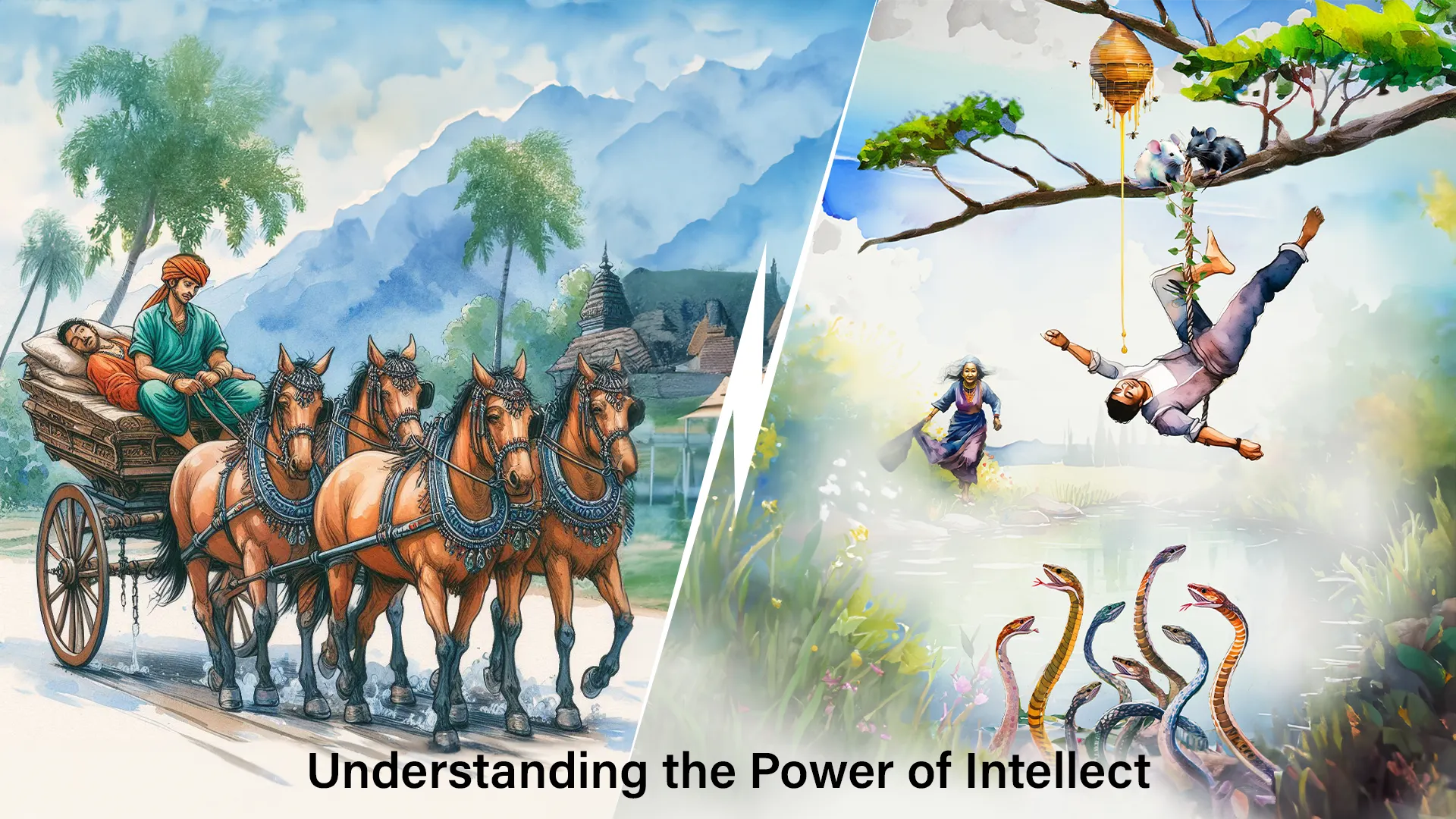

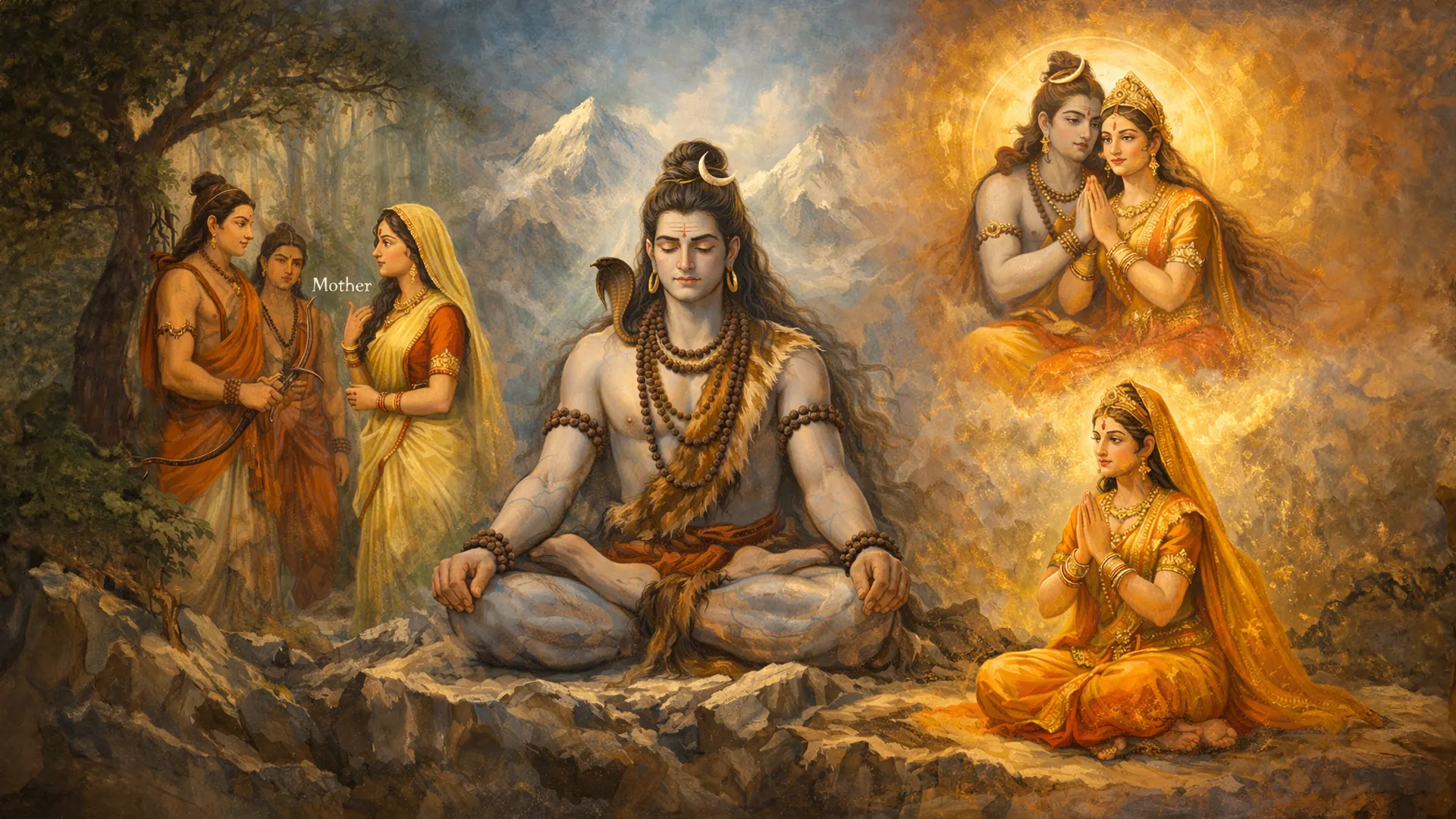
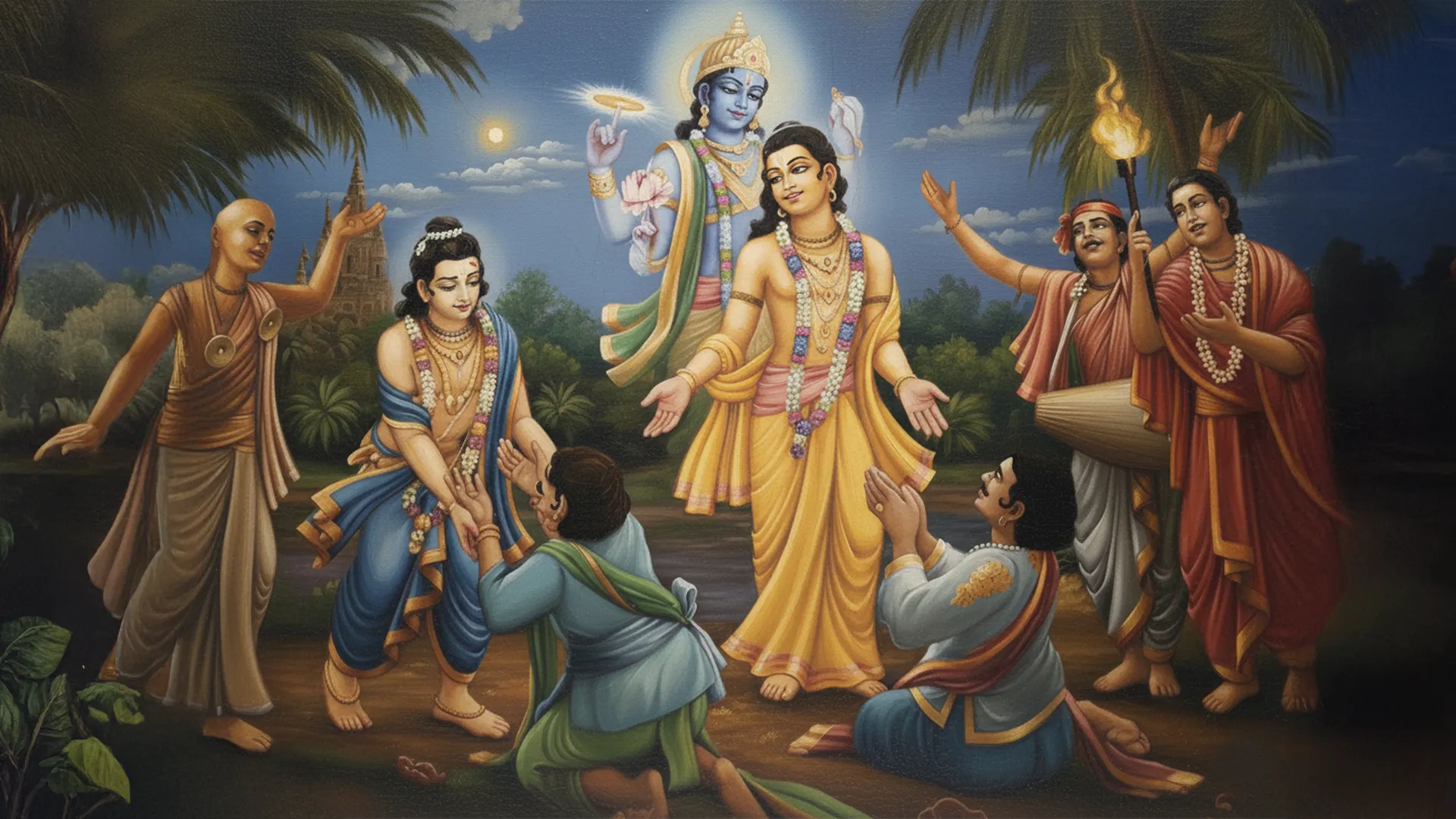
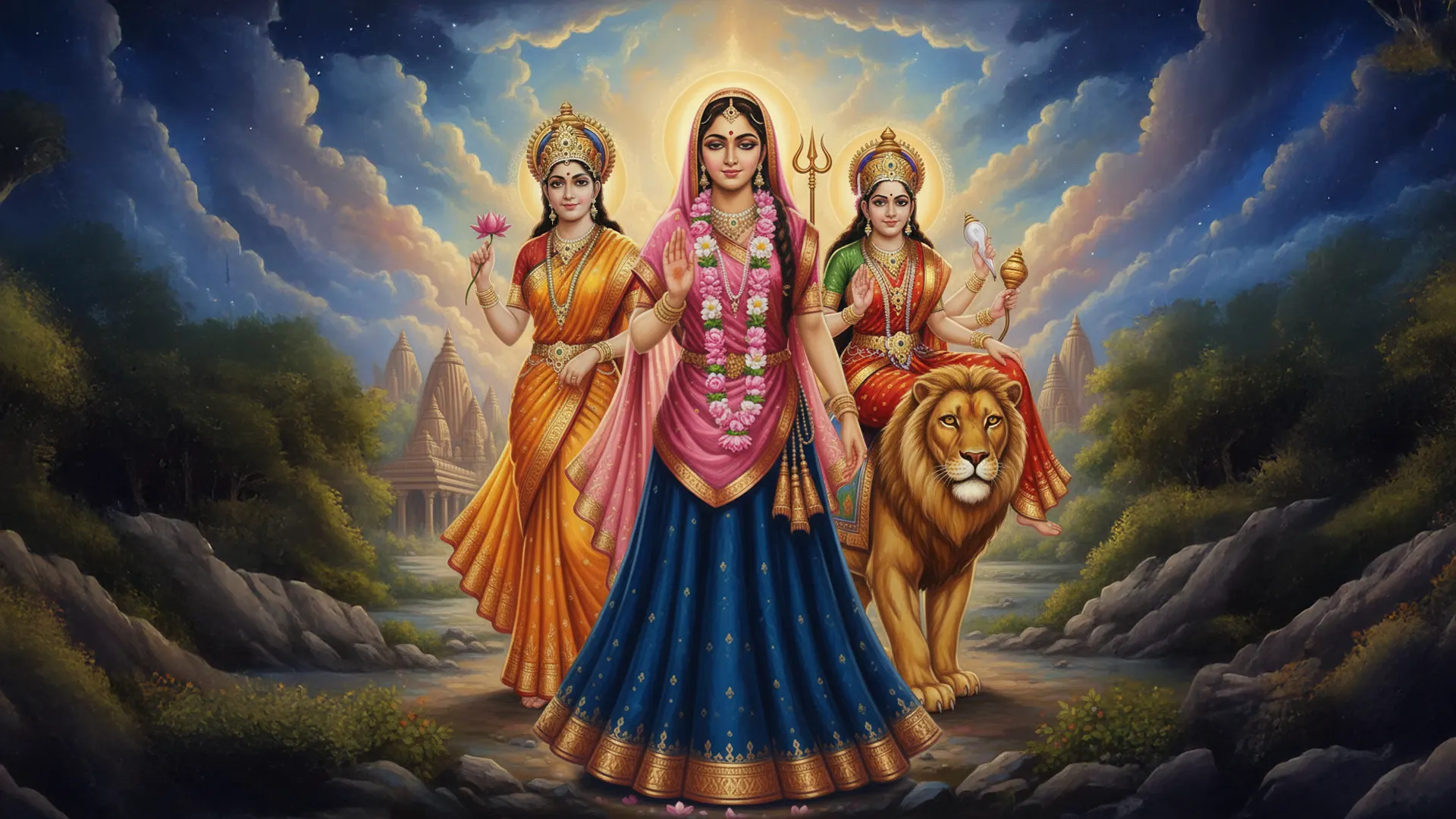
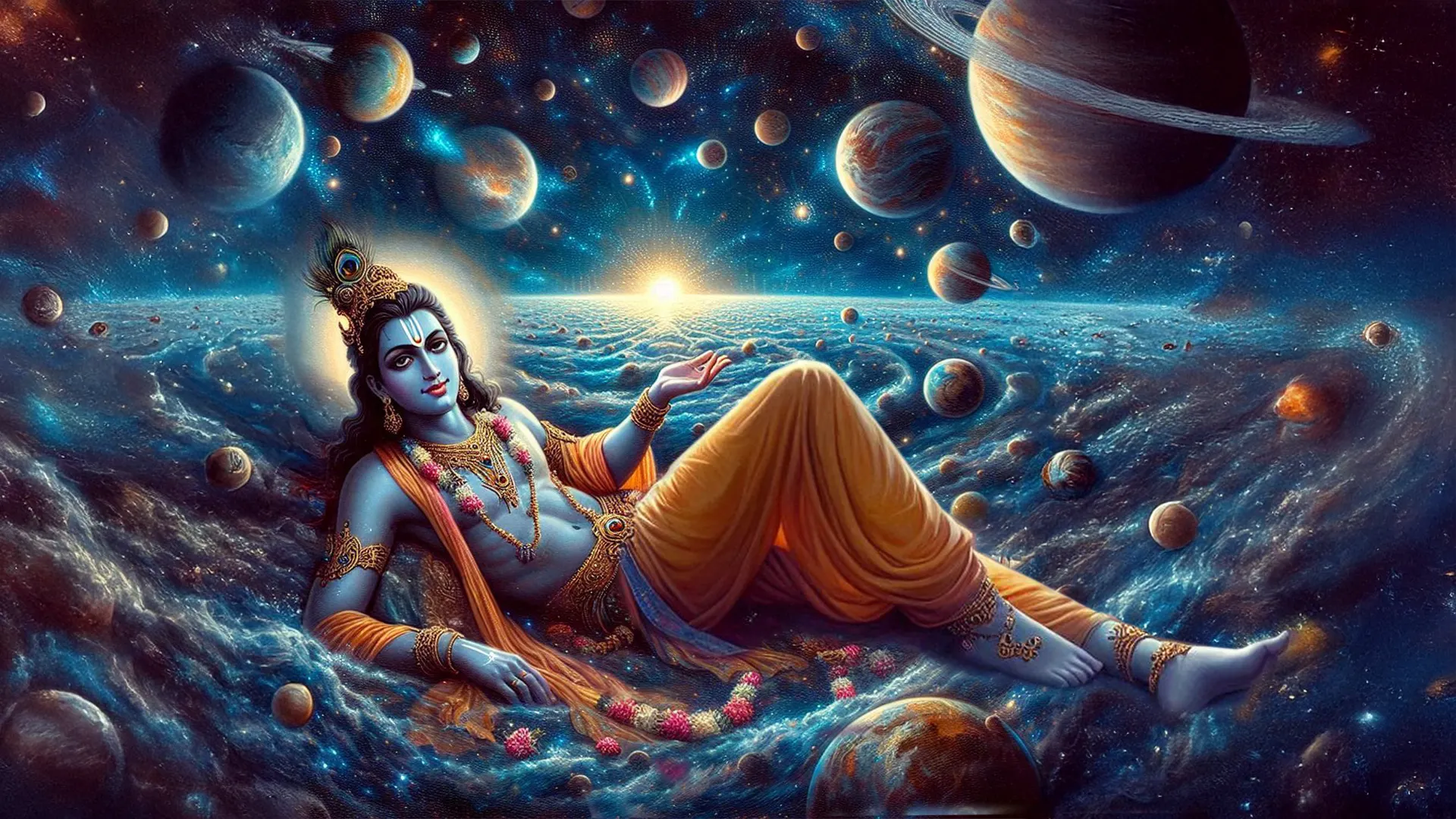
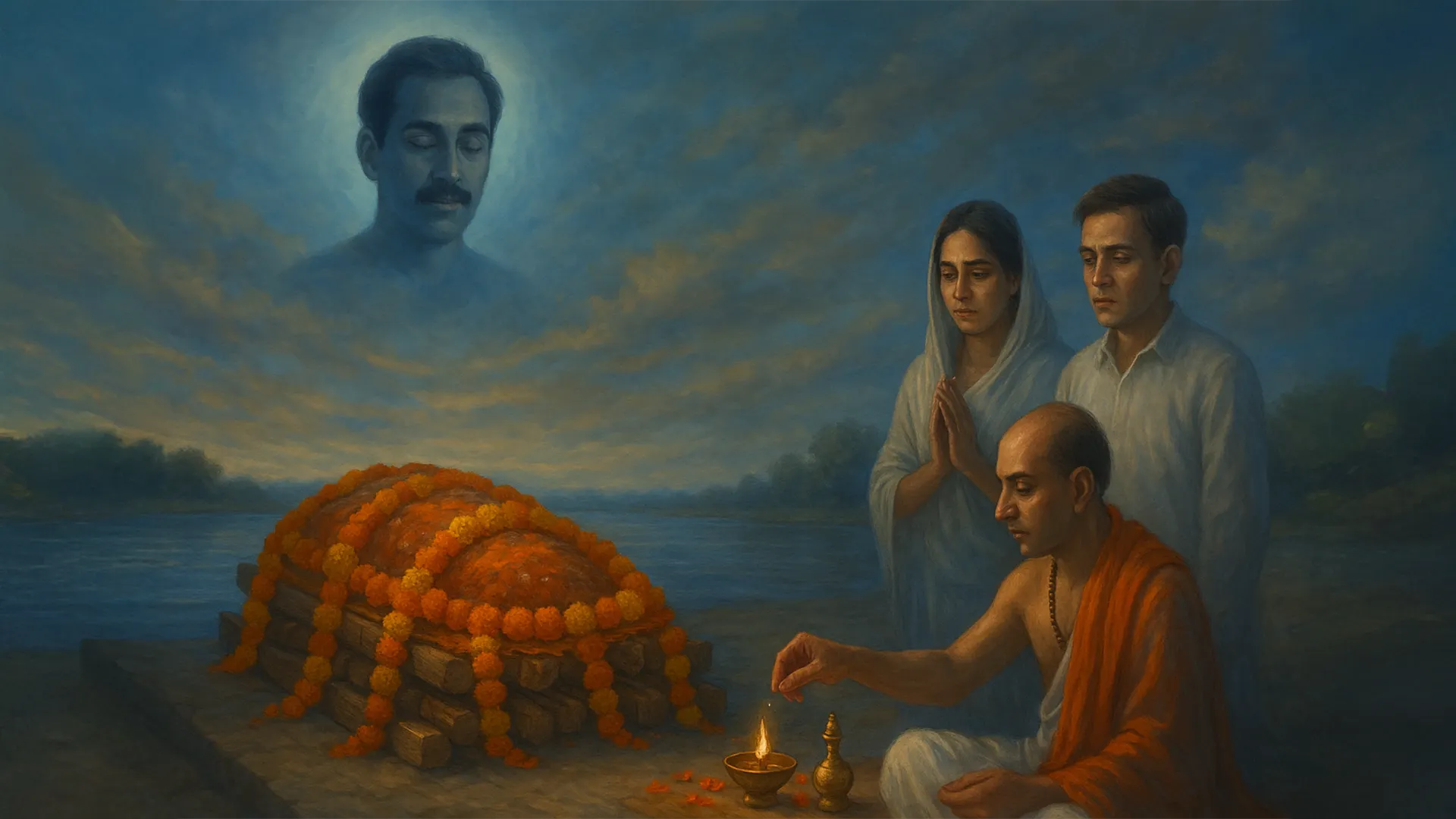
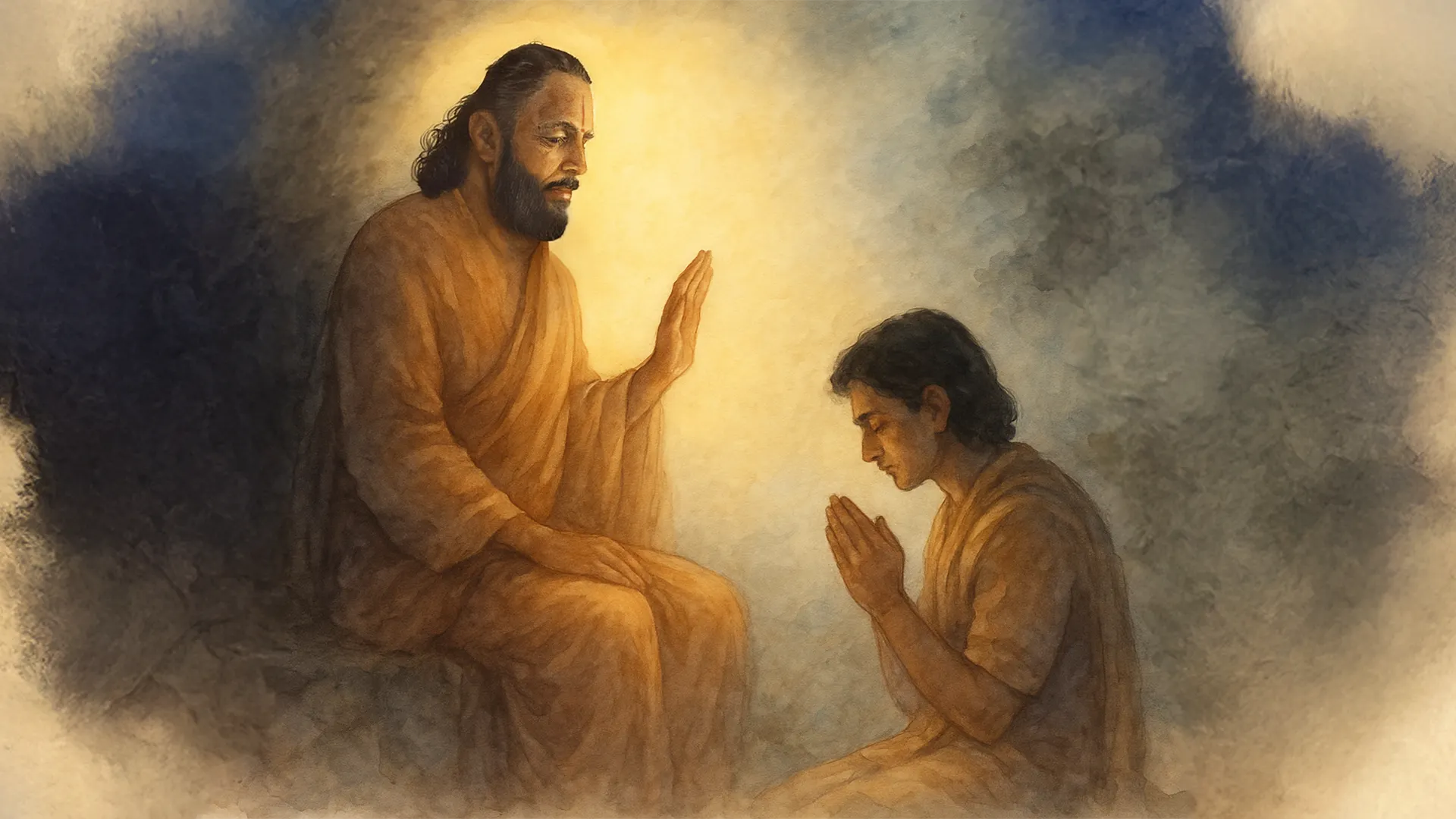
What our Participants say